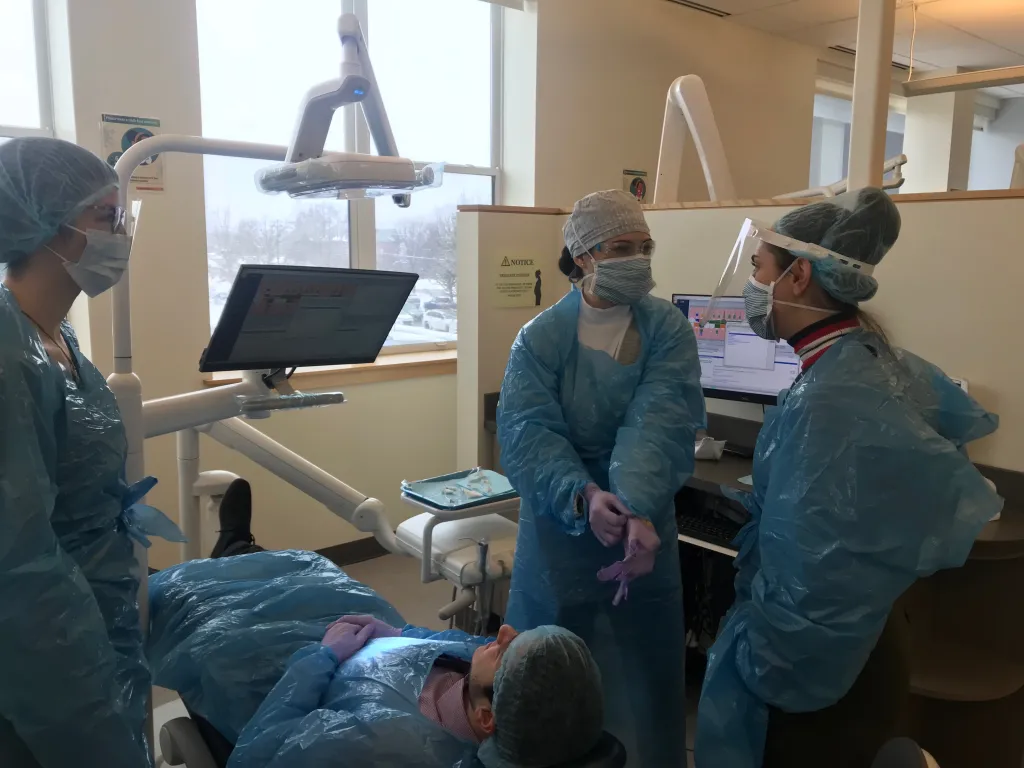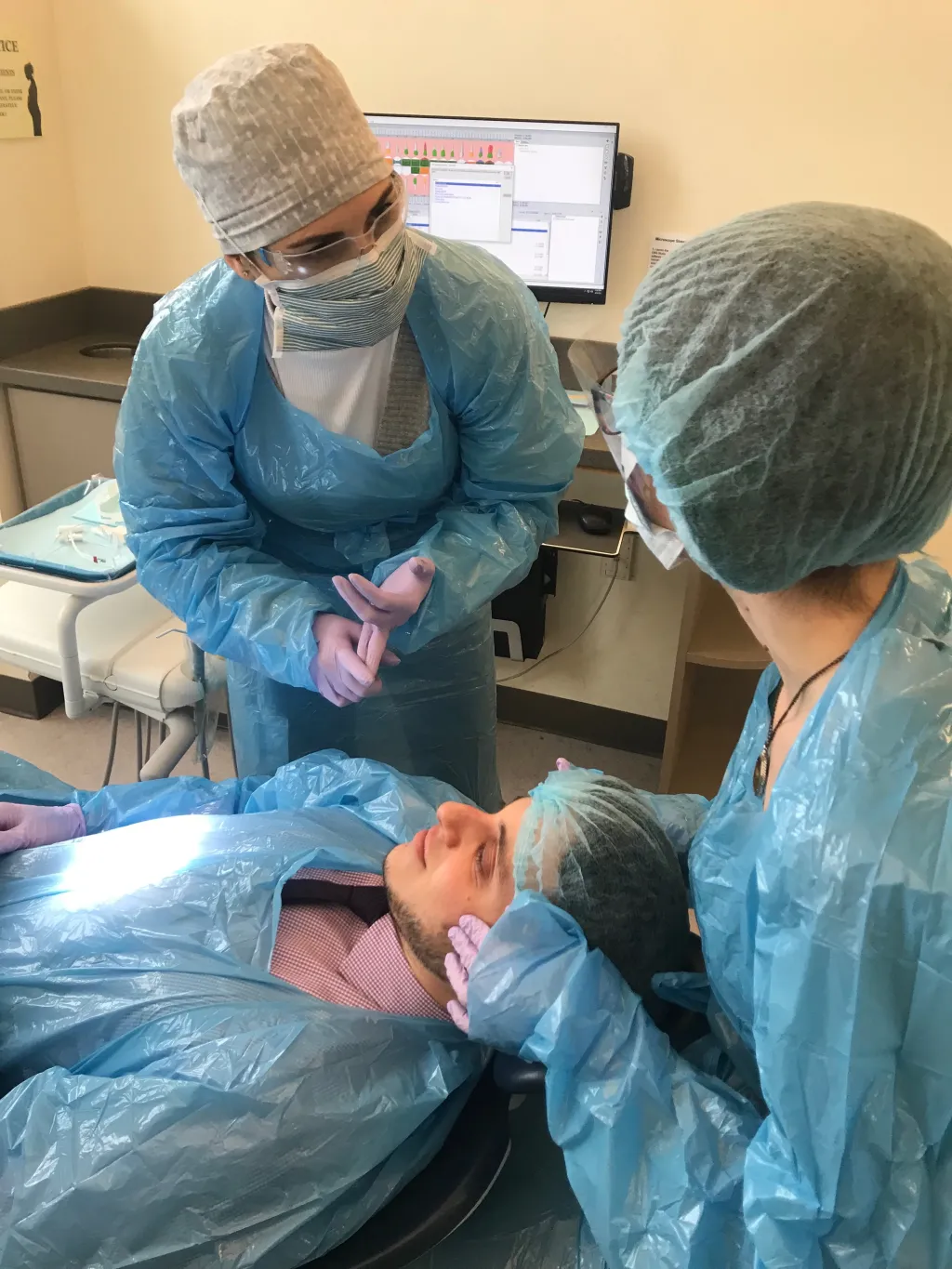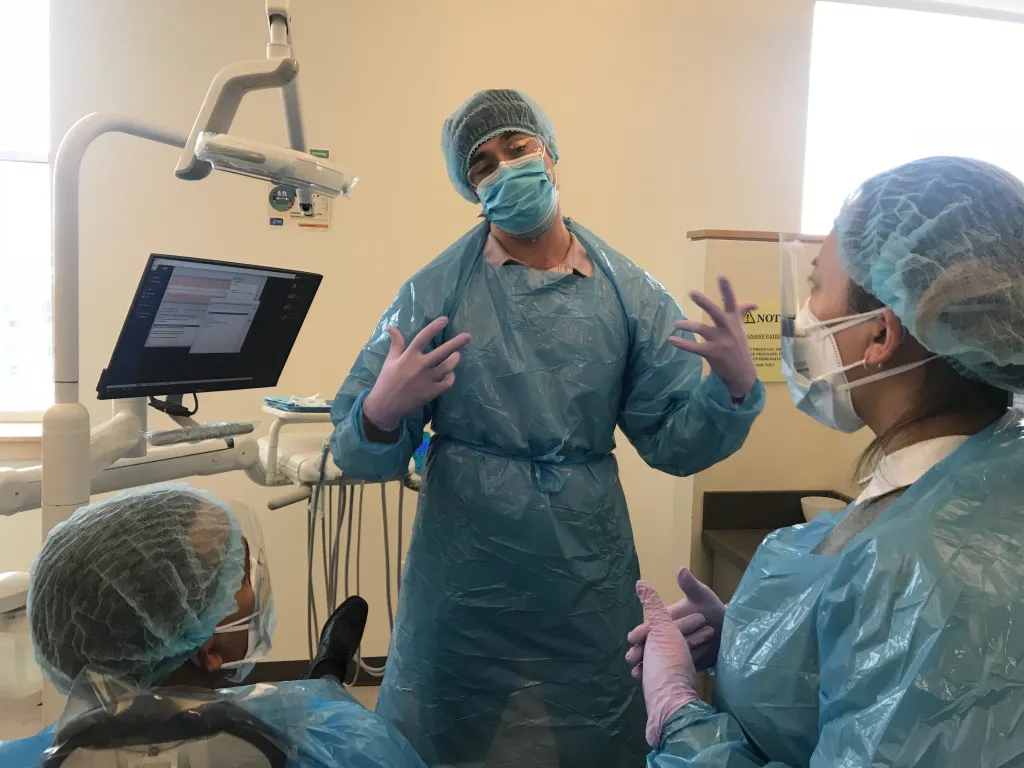Health professions students sharpen collaborative skills through interprofessional education classes

On a recent Tuesday, several students from the College of Osteopathic Medicine headed up to the second floor of the Oral Health Center for their first interprofessional class with College of Dental Medicine students.
“Third-and-fourth year dental students are teaching the COM students how to do a head and neck cancer screening,” explained Molly Cohen, D.M.D., assistant clinical professor in the College of Dental Medicine. “They examine tissues in the mouth, the gums, the tongue, the tonsils, and the salivary glands. All of these things can grow cancers.”
The students welcomed the opportunity to learn from each other.
“I want to work in the emergency department, and you can see a little bit of everything in there,” said Andrew Shanes (D.O., ’24). “People will come in with dental issues, and even though that is not my main specialty, I think it is still important to have knowledge about that.”
Spencer Valley (D.M.D., ’21) says giving the COM students a two-hour demonstration of head and neck examinations is just the start of a learning process.
“It is not going make the COM students experts in the oral environment, but it will help them recognize when something is not right,” he commented. “By helping them recognize any abnormalities, they can then send the patient our way in a swift manner to help that patient get the treatment they need.”
As Jessica Converse (Dental Medicine, ’22) welcomed two COM students to her dental chair area, she explained how the interactions between students go both ways.
“We spend time just talking and sharing information and knowledge,” she said. “It is a really good learning experience for both parties, just having those conversations. We are limited to our own knowledge and resources, but when you have teams, including support from a doctor, a physical therapist, and a social worker, you can do a lot more for the patient.”
Interprofessional education is all about creating better outcomes for patients.
“Our bodies are connected to the mouth, so dentists and physicians should be connected to each other as well,” Cohen stated. “The better we all know what each other are doing, the better we can help our patients.”
It is also about opening up the lines of communication between health care providers.
“I think it is important for providers to have a direct line of communication with each other,” Valley said. “When I am in the dental clinic and I can call a doctor quickly, discuss something, and be on the same page with them, rather than having to explain things, that makes treatment for the patient much easier.”
More and more health care professionals are realizing the importance of collaboration between practices. Students say the sooner they can get involved in being part of a health care team, the better prepared they will be.
“People in all the health professions in general work together every day to help patients, whether it is in the hospital, in an outpatient setting, in social work or here in dental care,” Shanes stated. “So, it is important that we start learning to work together so that when we get into the actual profession we already have that knowledge.”
Cohen will be teaching several more interprofessional classes this semester with her dental students, as they collaborate with students from COM and the Physician Assistant (PA) program.


